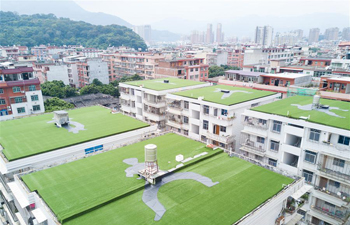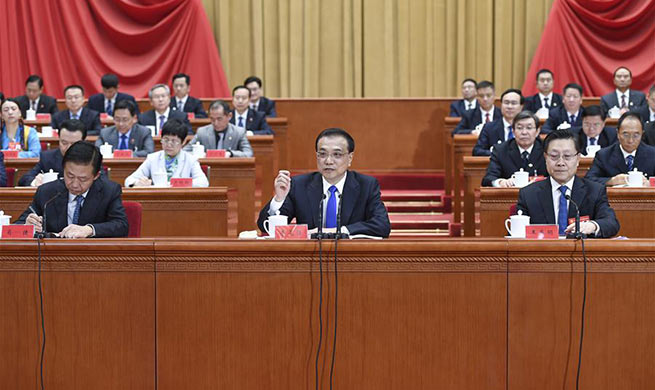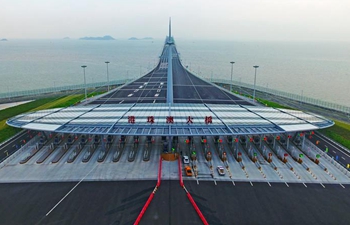ULAN BATOR, Oct. 25 (Xinhua) -- China has contributed significantly to Mongolia's infrastructure development and improved people's living conditions by supporting the country's major construction projects, Mongolian Minister of Construction and Urban Development Khavdislam Badyelkhan has said.
Several major projects in Mongolia are being implemented with Chinese soft loans and non-refundable assistance, and they are of great importance to Mongolians, especially residents of the capital Ulan Bator, Badyelkhan told Xinhua in a recent interview.
Bilateral cooperation in the construction and infrastructure sector has been expanded in recent years, Badyelkhan said.
"Projects to renovate Ulan Bator's shantytowns or ger districts and build a waste water processing plant in the city are the most important ones among the China-funded others. These projects are essential to improving Ulan Bator's environment and living conditions of the Mongolian people," Badyelkhan said.
The Mongolian capital is one of the cities in the world which has been affected by "urban ills" such as pollution, overpopulation and traffic congestion due to migration from the countryside to the cities.
Noting that air pollution is the most pressing issue in Ulan Bator where over 800,000 residents, half of the city's population, live in the ger districts, with no running water and central heating or sewerage system, Badyelkhan said two projects to renovate the ger districts with non-refundable aid from the Chinese government are being implemented.
In addition, the Mongolian government is implementing a project with non-refundable aid from the Chinese government to connect about 20,000-30,000 households in 100 locations of Ulan Bator's ger districts to engineering lines by 2020, the minister said.
A waste water processing plant will be built in Ulan Bator with soft loans from the Chinese government, said Badyelkhan.
The minister said the plant will have the capacity to purify 250,000 cubic meters of waste water a day.
"The existing waste water processing plant in Ulan Bator does not have a system of processing silt and waste silt. Heavy metals are dried up outside causing air pollution," he said, stressing that the new project is expected to be completed in 2020 and will help improve the city's environment.
In 2019, Mongolia and China will celebrate the 70th anniversary of the establishment of diplomatic relations.
Badyelkhan said he hoped that the two countries will accelerate joint projects and strengthen ties and cooperation in all sectors on the occasion of this anniversary.













